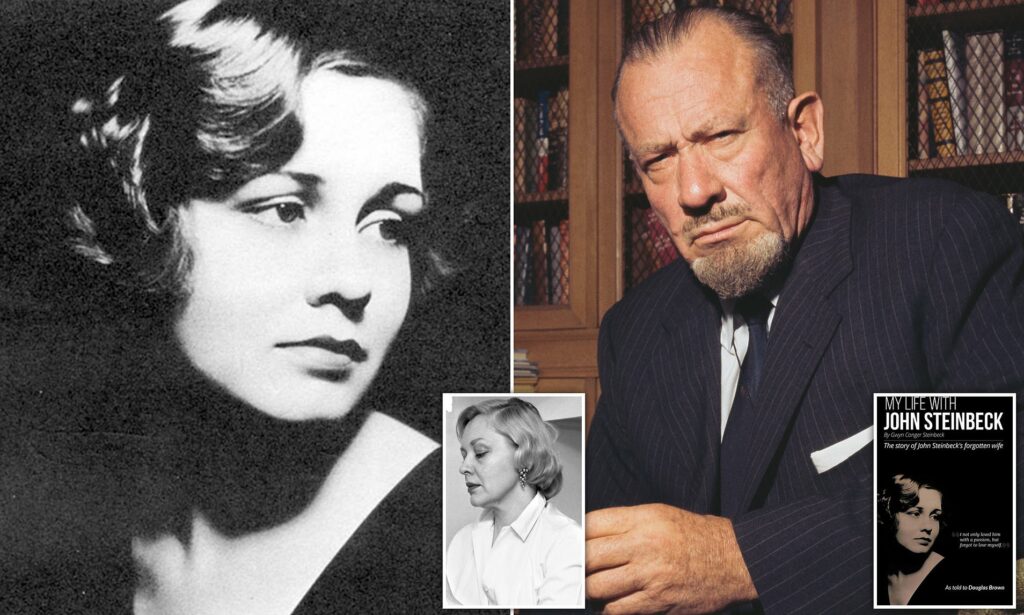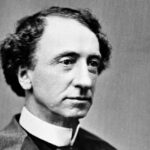Historical Essays, Literature
The cruelty of John Steinbeck
In October 25, the auction house Bonhams in New York hosted the sale of a literary treasure trove—the private collection of Mary Steinbeck Dekker, the youngest sister of the great American novelist John Steinbeck. Included were a signed first edition of In Dubious Battle, which fetched $54,000, along with presentation copies of Tortilla Flat ($58,000), and The Pastures of Heaven ($32,000), both inscribed to Mary. The crowning jewel of the collection, Steinbeck’s personal, unpublished journal from 1949, sold for $70,000.
The journal begins with Steinbeck recording his misery as 1948 drew to a close, shortly before he began writing his masterpiece, East of Eden. “I don’t suppose anyone has ever so hated a year as I hated 1948,” he wrote. “It is with a great sense of relief that I move into 1949. No matter how bad it is, it can’t be as bad as ’48. Wife, children, best friend: All gone. But perhaps it toughened me.” His best friend, travel partner, and fellow writer, Ed Ricketts, had died in a train crash; his wife Gwyn had left with their two sons. Steinbeck would base Cathy Ames, the sociopathic villainess of East of Eden, on his ex-wife.
Gwyn told her side of the story shortly before she died in 1975, but the memoir, My Life with John Steinbeck, was never published, lying forgotten in the home of British ghostwriter Douglas Brown for decades. It was inherited by his brother after Brown’s death in the 1990s and subsequently discovered in Wales by his neighbour, Bruce Lawton, who published it in 2018. In the memoir, Gwyn describes a nasty man who put his career before his family and expected her to be a “slave” to his every whim. Steinbeck told her, for example, that her pregnancy with John Jr. “complicated” his professional life, and Gwyn claims that he never showed affection to his family. Gwyn writes that her love for him ended when he told her he wished their little son, who’d been born prematurely, would “die, he’s taking too much of your [expletive] time.”
There is an even uglier irony to all of this. In East of Eden, Steinbeck has Cathy Ames attempt an abortion with a knitting needle. It fails and she carries on with the pregnancy, but his point—that she is brutal and coldblooded—is reaffirmed. The truth is markedly different. According to Gwyn, Steinbeck’s disinterest drove her to arrange a secret abortion after she became pregnant during their affair; then, during her pregnancy with their third child (and second son), he told her to have an abortion: “I don’t want it, I don’t want any more kids.” He even tried to kick her down the stairs of their brownstone at 175 East 78th Street in New York; she fell in full view of visiting guests.
Steinbeck’s treatment of his first wife, Carol, was perhaps even more cruel. Without her, most of his biographers acknowledge, he might never have become the writer we know, and she meticulously typed out and edited Steinbeck’s early manuscripts. In 1939, the year that The Grapes of Wrath was finally published, Carol became pregnant. She desperately wanted the baby, but Steinbeck insisted that she procure an abortion. The resulting procedure was botched, Carol suffered an ugly infection, and a hysterectomy was necessary.
Their marriage collapsed shortly thereafter when Carol discovered his affair with Gwyn. Steinbeck went on to have children and was awarded the Nobel Prize for Literature in 1962, his ambition giving birth to success; Carol was condemned to lifelong childlessness. According to Steinbeck family friend Alison Harley: “Carol had felt for some time that they should have a child, but Steinbeck was afraid that fatherhood would interfere with his writing … Carol never got over the bitterness of this.” She had received one child, and that child was killed for John Steinbeck’s career. She lived the rest of her life knowing that would be the only one.
READ THE REST OF THIS COLUMN HERE









Yikes! I pray very few people read your lightly-veiled messages of hate.
Thanks for reading!